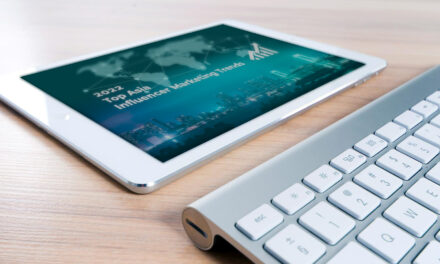Exclusive research and expert insights reveal that 58 percent of workers in Singapore feel overworked and 49 percent feel exhausted.
The hybrid workplace is a reality now, its arrival hastened by the changes induced by the pandemic but its impact is not the same on different groups of workers.
The worst hit of the lot is the Gen Z — those between the ages of 18 and 25 — who are particularly at risk. More than two-thirds (70 percent) of this generation in Singapore say that they are merely surviving or flat-out struggling.
This is according to Microsoft’s first annual Work Trend Index titled, “The Next Great Disruption is Hybrid Work – Are We Ready?”.
The software giant shared the findings from this study on 18 May.
The survey also revealed that over 49 percent of the Singapore workforce is considering leaving their employer this year, for potentially better jobs or more flexible jobs.
Top hybrid work trends in Singapore
The Microsoft survey highlighted the following trends in Singapore and across APAC:
• Flexible work is here to stay: More than 82 percent of workers in Singapore want flexible remote work options to stay, but 66 percent are also craving more in-person time with their teams. Business leaders in Singapore are also recognizing the workplace evolution and 62 percent of them are more likely to redesign office space for hybrid work.
• Leaders are out of touch with employees and need a wake-up call: Research shows that 51 percent of leaders in Singapore say they are thriving right now – whereas only 27 percent of employees without decision making power say the same (24 percentage point gap).
• High productivity is masking an exhausted workforce: 58 percent of workers in Singapore feel overworked and 49 percent feel exhausted, suggesting that high productivity does not equate to a healthy workforce.
• People are more likely to move now they can work remotely: 50% of remote workers in Australia and New Zealand are likely to move to a new location because they can now work remotely.
• More productive but exhausted and stressed: While 63 percent of workers in Japan say their productivity levels have remained the same compared to last year, 48 percent of workers are feeling exhausted and 45 percent feeling stressed.
• More likely to change professional paths: 47 percent of workers in Asia are likely to consider changing employers and 56 percent are likely to consider a career change. However, in Japan, this number is much lower, with only 38 percent of workers likely to consider changing employers within the year.
Presenting these findings in an online media briefing, Joanna Lim, Modern Work and Security Business Group Lead, Microsoft Singapore, said thatbusiness leaders in Singapore should resist the urge to see hybrid work as business as usual. Instead, they should lead with empathy, instill flexibility, and humanize work for employees.
“As businesses adapt to the disruptive change, business leaders must recognize that long-held assumptions no longer hold true with their employees,” she said. “They must now make choices that will impact their organizations for years to come. Business leaders now need to dig deeper to think about shaping their culture to attract and retain talent, foster collaboration and innovation, and deliver on the extreme flexibility that employees need.”
Expressing her concerns about Gen Z, she said that they are our future and employers should let them express themselves and provide them the platform for their expression. “They are bursting with new ideas and the best way to engage them is to allow them to share their ideas,” she said.
Strategies for hybrid work
The Work Trend Index also identified key strategies for business leaders as they begin to make the necessary shift to hybrid work. It suggested a new operating model that is focused on people and space, underpinned by technology. It includes measures such as empowering people for extreme flexibility, combating digital exhaustion from the top through analytics, reducing burnout, investing in space and technology to bridge the physical and digital worlds and bringing together communications, knowledge, learning, resources, and insights into an integrated experience that empowers people and teams to be their best from anywhere, with solutions designed for hybrid work like Microsoft Viva.
The software company also gave a demo of its Workplace Analytics product, Microsoft Viva Insights. The demo showed how the software gives managers and leaders anonymized insights into team and organizational wellbeing.
According to Microsoft, the 2021 Work Trend Index study covered more than 30,000 people in 31 countries including Singapore, and analysed trillions of aggregate productivity and labor signals across Microsoft 365 and LinkedIn. It also includes perspectives from experts who have studied collaboration, social capital, and space design at work for decades.


















